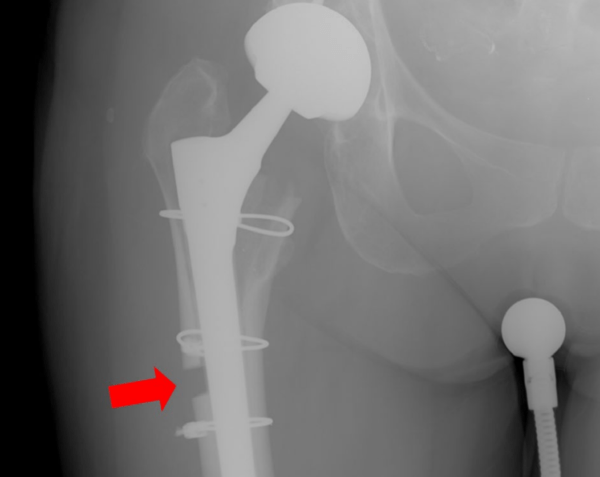
A doctor had to saw into a woman’s femur to fix his own surgical mistake after failing to catch the error at an earlier appointment, a lawsuit said.
Mary Shea, then 64, of Milbridge, had a hip replacement surgery performed by Dr. Peter Copithorne at Northern Light Maine Coast Hospital in February 2019, a lawsuit filed in Hancock County Superior Court said.
She had to have two more surgeries and was left with significant pain and mobility problems because of Copithorne’s actions, the lawsuit said.
Copithorne did not provide reasonably competent care and had a “continuing course of negligent treatment,” the lawsuit said. It alleges Northern Light is liable as Copithorne’s superior.
Shea had “extraordinary medical expenses,” lost earnings, lost enjoyment of life and permanent impairment, the lawsuit said. She is asking for an unspecified amount of compensatory damages.
Medical malpractice lawsuits are common in the U.S. In 2022, 61 percent of physicians had ever been sued for medical malpractice, according to a study from the American Medical Association.
Northern Light advertised Copithorne as a specialist in “minimally invasive joint replacements,” the lawsuit said.
Copithorne completed his medical training in Canada in July 2014. He was hired by the hospital, which sponsored his Green Card. Copithorne allegedly failed the written examination for board certification by the American Board of Medical Specialties. He did not attempt the test again.
After Shea’s hip replacement, she had a two-week follow-up appointment, where everything looked great. She was told to do physical therapy and return for a six-week appointment.

By her six-week appointment, Shea had what looked like bruising around her hip, was walking with a lurched gait and still felt very weak despite physical therapy and daily exercises.
She had an x-ray taken before the appointment, but Copithorne did not look at it or measure her leg lengths to see if there were any change, per the lawsuit.
“Copithorne told Mary she needed to work harder with physical therapy,” the lawsuit said.
In the appointment notes, Copithorne used a template that automatically generates language to say he reviewed the x-rays, the lawsuit said. Shea was billed for Copithorne looking at the x-rays, but he did not actually look at them.
He told Shea to come back in two months for another appointment.
“She tried to work harder and push through the pain, because that is what he had told her to do,” the lawsuit said. “She felt frustrated and depressed that she was not getting better.”
Shea had another x-ray before her May 24, 2019, appointment. Copithorne looked at the x-ray results in the exam room and left without speaking to Shea, the lawsuit said.
He then came back into the room, looked at the x-ray a second time and left again. Shea waited in the room, confused.
Copithorne told Shea the femoral stem part of her hip prosthesis had “slipped,” which is why she was not improving at physical therapy. He said he didn’t know how he missed the issue on her March x-ray but that he must have read the wrong x-ray.
She was told she needed surgery as soon as possible to remove and replace the piece. The surgery, two-and-a-half months later, was outside the “easy revision” window.
Copithorne had to saw through Shea’s femur to cut out part of the prosthesis where the bone had grown around it.
The second surgery still left Shea in pain and unable to heal correctly because the hardware to fix the mistake was also not used properly, the lawsuit said.
Wire was used to put Shea’s femur back together, but Copithorne left about a centimeter gap, which “was too large to heal,” per the lawsuit.
Shea had significant pain, weakness and mobility impairment after the surgery. Copithorne told her she would improve with physical therapy but she still needed a cane after months of rehabilitation.
Her pain was getting worse as well, the lawsuit said.
In December 2019, about 10 months after her first hip surgery, Shea went to another orthopedic surgeon at Maine Medical Center in Portland. The new surgeon implanted reinforcing hardware, which stabilized her femur.
Nearly three years after her third surgery, Shea is still in pain and has a decreased range of motion.
Before Shea’s misdiagnosis, she was a hiker, but she can no longer do the activity.
Copithorne still works at Northern Light Maine Coast Hospital, where he is the second-highest paid physician, according to the lawsuit.







